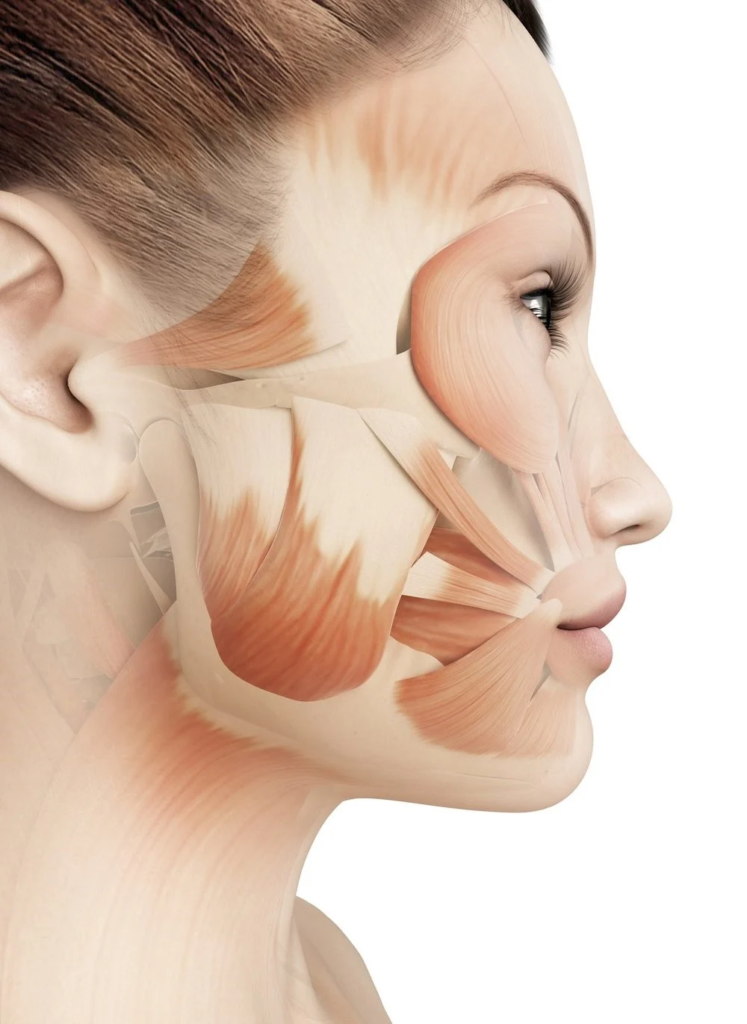What is Myofunctional Therapy?
Orofacial Myofunctional Therapy (OMT) is a type of therapy that focuses on the muscles in the face and mouth. It aims to improve how these muscles work together for better breathing, chewing, swallowing, and speaking. OMT helps correct habits like mouth breathing or thumb sucking, which can lead to issues with teeth alignment and overall health. Through exercises and techniques, it encourages proper muscle function and promotes better oral and facial development.

Who is Myofunctional Therapy for?
Many people can benefit from Orofacial Myofunctional Therapy, including:
- Children: Those with habits like thumb sucking, mouth breathing, or tongue thrusting, which can affect dental and facial development.
- Adults: Individuals with issues like temporomandibular joint (TMJ) disorders, sleep apnea, or chronic jaw pain.
- Orthodontic Patients: Those undergoing orthodontic treatment can benefit from OMT to support proper alignment and stability.
- Speech Disorders: People with speech issues related to oral muscle function may find improvement through OMT.
- Individuals with Swallowing Difficulties: Those who struggle with swallowing or chewing may benefit from the therapy to improve muscle coordination.
Could I benefit from Myfunctional Therapy?
You might consider Orofacial Myofunctional Therapy if you notice any of the following signs:
- Mouth Breathing: Regularly breathing through your mouth instead of your nose.
- Tongue Thrusting: Your tongue pushes against your teeth when speaking or swallowing.
- Dental Issues: Frequent cavities, misaligned teeth, or jaw problems.
- Speech Difficulties: Struggling with certain sounds or clarity in speech.
- Jaw Pain or TMJ Symptoms: Experiencing pain in the jaw, clicking sounds, or difficulty opening your mouth.
- Swallowing Issues: Trouble swallowing or discomfort while eating.
- Habitual Thumb Sucking or Lip Biting: Ongoing habits that affect oral health.
What does Myofunctional Therapy treatment look like?
Myofunctional Therapy treatment typically involves several key components:
- Initial Assessment: A qualified therapist will evaluate your oral and facial muscles, breathing patterns, and habits. This assessment helps identify specific issues and create a tailored plan.
- Exercises: You’ll learn various exercises designed to strengthen and coordinate the muscles in your mouth, tongue, and face. These exercises may include tongue exercises, lip closure techniques, and breathing exercises.
- Behavior Modification: The therapist will work with you to change any harmful habits, such as mouth breathing or thumb sucking, and encourage healthier alternatives.
- Education: You’ll receive guidance on the importance of proper oral posture, including how to position your tongue at rest, breathe through your nose, and maintain a closed mouth.
- Follow-up Sessions: Regular, at home sessions allow for monitoring progress, adjusting exercises, and reinforcing techniques.
- Collaboration: The therapist will work alongside our dentists or orthodontists, to ensure a comprehensive approach to your oral health.
